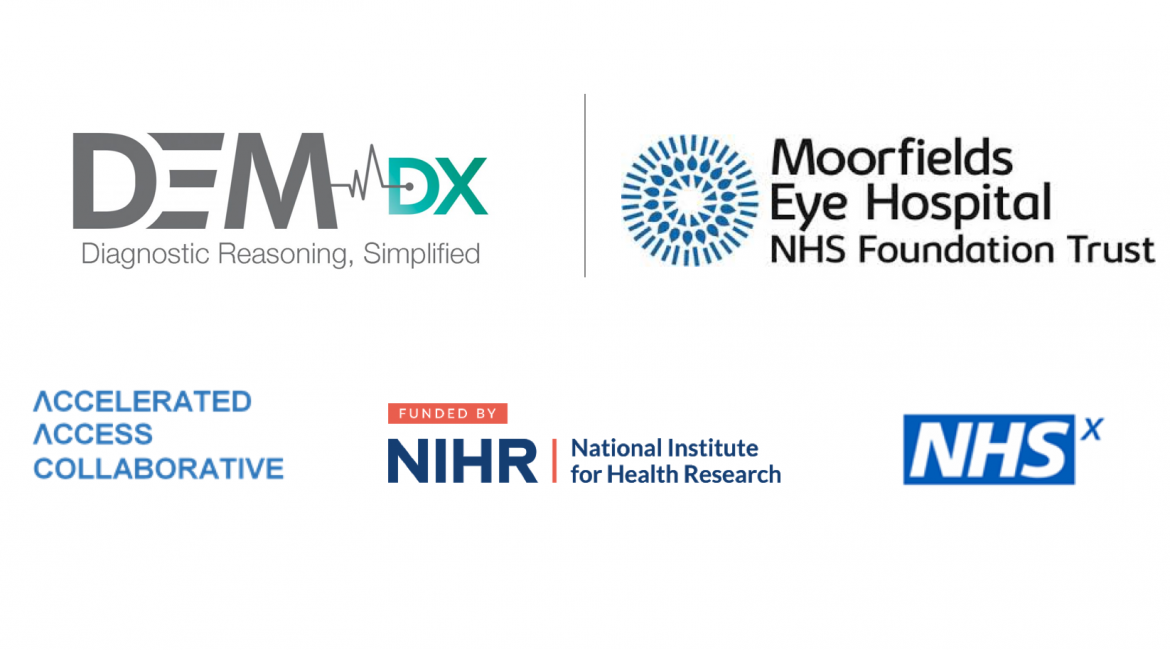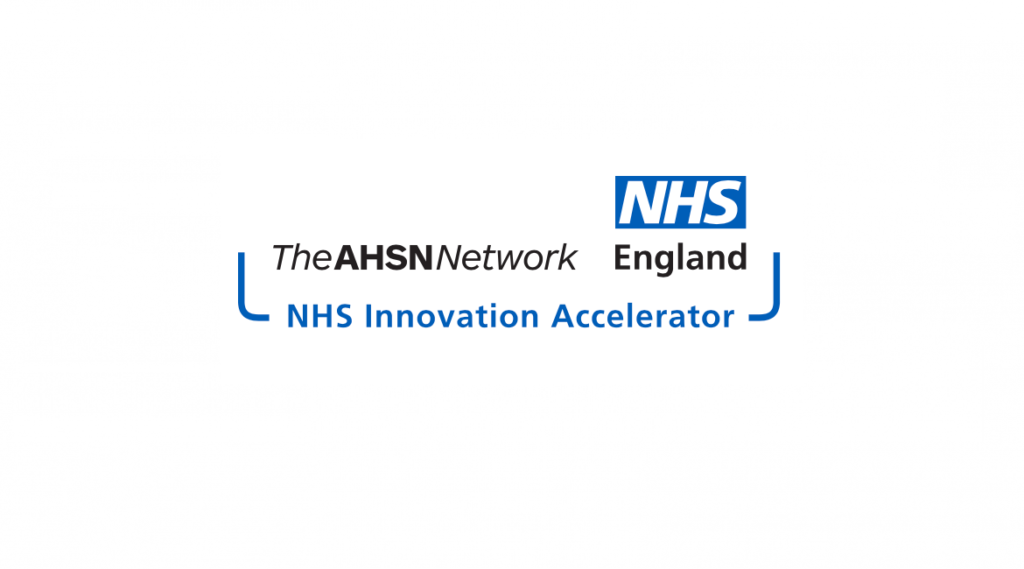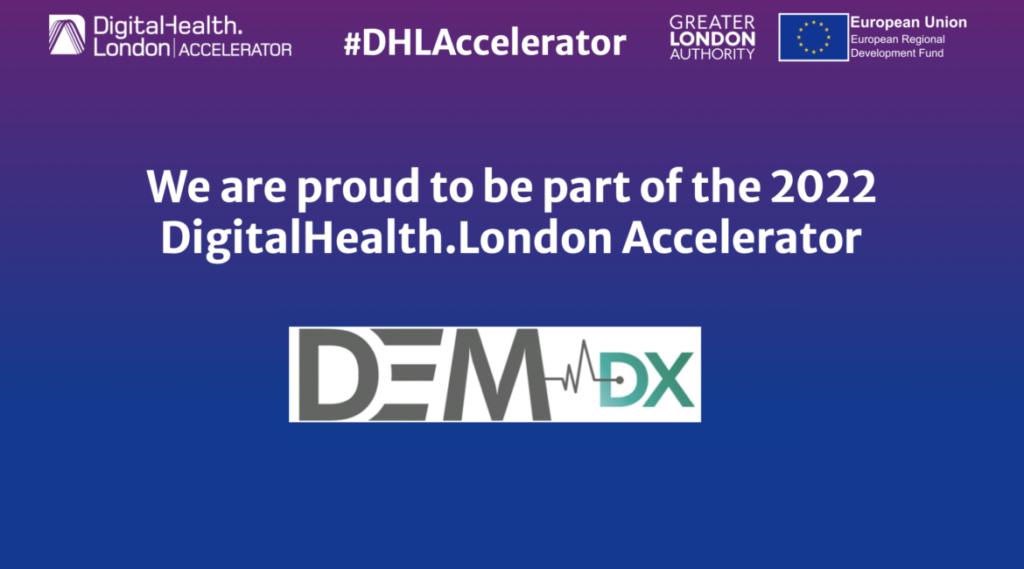PRESS RELEASE
26th January 2021
- Clinical reasoning tool, ‘Triage Platform,’ uses AI to help nurses and optometrists safely triage patients to free up doctors’ time
- Project will generate early clinical safety and efficacy data
- Project funded by Accelerated Access Collaborative, NIHR and NHSx
Healthcare company DemDx and Moorfields Eye Hospital NHS Foundation Trust have been awarded £1.1M to develop and evaluate DemDx’s medically certified, AI-powered clinical reasoning tool ‘Triage Platform’ for eye health services. The project officially launched on January 4th.
The ‘Triage Platform’ is estimated to reduce patient referrals to unnecessary tertiary care by up to 20%, potentially benefiting 350,000-540,000 patients a year, with possible operational savings of over £17M annually.
The platform supports the practitioner during a patient’s clinical assessment. It uses a combination of a database built by world-leading doctors and AI to tell the practitioner whether a patient needs urgent attention from a doctor or a less urgent referral.
The grant is part of the Artificial Intelligence in Health and Care Award which plans to spend £140M over three years to accelerate the testing and evaluation of the most promising AI technologies to meet the NHS Long Term Plan’s aims.
‘Triage Platform’ aims to maintain a high quality of clinical care to help address shortages of Ophthalmology specialists, by empowering other frontline practitioners to provide clinically accurate, safe and consistent triaging at the point of first contact with the patient. This enables doctors’ time to be used more efficiently and effectively, allowing them to focus on the most critical patients.
The two-year project will trial the effectiveness of ‘Triage Platform’ in adult A&E ophthalmology services, and the data collected will be used to make the tool’s AI algorithms more accurate.
‘Triage Platform’ will also be used alongside the NHS’s video conference service ‘Attend Anywhere’, which is being used nationally as part of the COVID-19 Urgent Eyecare Service, giving patients a completely digital healthcare experience.
According to NHS digital, Ophthalmology is the NHS’s busiest outpatient service, with 7.5 million attendances each year. Yet studies have shown that accurate diagnosis of eye conditions in primary care is only achieved between 16% and 36% of the time, and up to 12% of those misdiagnosed experience adverse outcomes as a result1.
Dr Lorin Gresser, Founder and CEO of DemDx, said: “We’re extremely pleased to be strengthening our existing partnership with Moorfields Eye Hospital through this new funding. Effective triage is critical for patients to have accurate and safe experiences with eye hospitals. We’re the only company with an AI-based clinical decision tool aimed specifically at the frontline practitioner workforce in triage, and we are excited to see the benefits it brings to the NHS, its staff and patients.”
Dr Alex Day, Consultant Ophthalmologist at Moorfields Eye Hospital, said: “At Moorfields we’re constantly exploring how artificial intelligence can help us to deliver excellent patient care. This triaging tool has the potential to help our patients to be treated as quickly as possible, giving them a better outcome and experience. AI is becoming more and more important in ophthalmology and we look forward to seeing its full potential in this project.”
1 https://www.ncbi.nlm.nih.gov/pmc/articles/PMC4964165/#R7
For further information and images please contact Grace Holland at grace.holland@ovidhealth.co.uk or call 07572232557
About DemDx www.demdx.com/
DemDx is the first to combine expert knowledge with AI to deliver a clinical reasoning tool that can be used by all frontline healthcare professionals to make triaging more effective.
As a global leader in AI driven health technology, we are committed to maintaining the quality of clinical care despite the workforce shortages our health services face, by enabling frontline practitioners to make clinically accurate, safe, transparent and consistent triage decisions. We help improve overall clinical care, reduce healthcare delivery costs and use doctors’ time more efficiently and effectively.
Our medically-certified clinical reasoning tool is the only licensed tool available to frontline practitioners working in triage. The web, tablet, and smartphone app includes clinical algorithms covering 15 specialties, over 2000 diagnoses across more than 50,000 clinical pathways.
About Moorfields Eye Hospital NHS Foundation Trust www.moorfields.nhs.uk/
Moorfields Eye Hospital NHS Foundation Trust is one of the leading providers of eye health services in the UK and a world class centre of excellence for ophthalmic research and education. Our main focus is the treatment and care of NHS patients with a wide range of eye problems, from common complaints to rare conditions that require treatment not available elsewhere in the UK. Our unique patient case-mix and the number of people we treat mean that our clinicians have expertise in discrete ophthalmic sub-specialties.
In 2017/18, we received over 740,000 visits from patients to our outpatient, inpatient and A&E services, making Moorfields the largest eye care provider in the UK.
We treat people in 32 locations in and around London, the south east and Bedford, enabling us to provide expert treatment closer to patients’ homes. We also operate commercial divisions that provide care to private patients in both London and the Middle East.
With our academic partners at the UCL Institute of Ophthalmology, Moorfields is recognised as a leading centre of excellence in eye and vision research. Together we form one of the largest ophthalmic research sites in the world, with the largest patient population in Europe or the USA. We publish more scientific papers than any other eye and vision research site and have an extensive joint research portfolio.
About the NHS AI Lab
The NHS AI Lab is a focal point to accelerate the safe adoption of AI into the front line of health and care. It brings together government, the NHS, academics and technology companies to help tackle some of the toughest challenges in health and care.
The NHS AI Lab believes in creating a sustainable health and care system which achieves better outcomes, equality and fairness for all. We want to support AI technologies that have potential to improve the quality of health and care services while building a robust ethical and regulatory framework to ensure patient and citizen safety. https://www.nhsx.nhs.uk/ai-lab/
About the Accelerated Access Collaborative
The Accelerated Access Collaborative brings together industry, government, regulators, patients and the NHS to remove barriers and accelerate the introduction of ground-breaking new treatments and diagnostics which can transform care. The AAC supports all types of innovations: medicines, diagnostics, devices, digital products, pathway changes and new workforce models. www.england.nhs.uk/aac/
About NIHR
The National Institute for Health Research (NIHR) is the nation’s largest funder of health and care research. The NIHR:
- Funds, supports and delivers high quality research that benefits the NHS, public health and social care
- Engages and involves patients, carers and the public in order to improve the reach, quality and impact of research
- Attracts, trains and supports the best researchers to tackle the complex health and care challenges of the future
- Invests in world-class infrastructure and a skilled delivery workforce to translate discoveries into improved treatments and services
- Partners with other public funders, charities and industry to maximise the value of research to patients and the economy
The NIHR was established in 2006 to improve the health and wealth of the nation through research, and is funded by the Department of Health and Social Care. In addition to its national role, the NIHR supports applied health research for the direct and primary benefit of people in low- and middle-income countries, using UK aid from the UK government.





